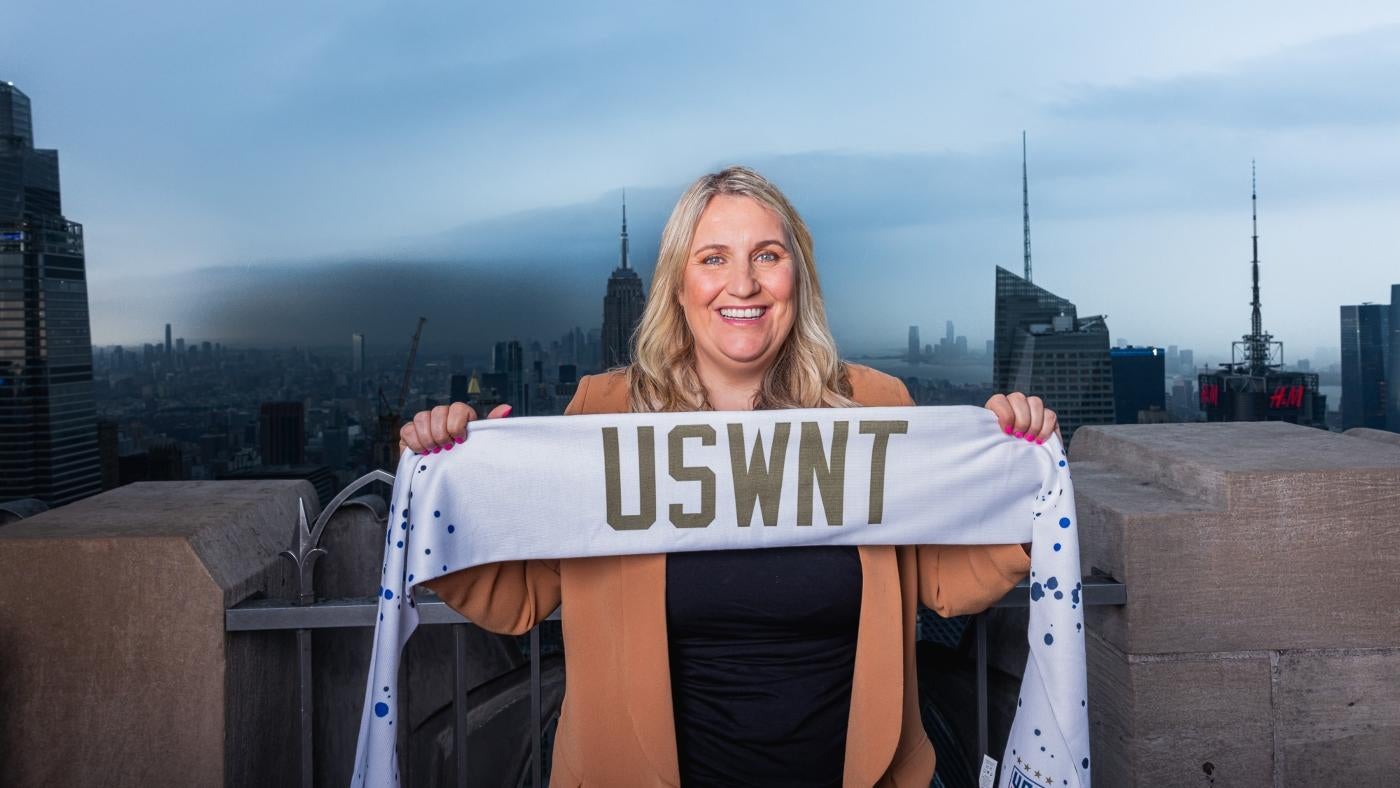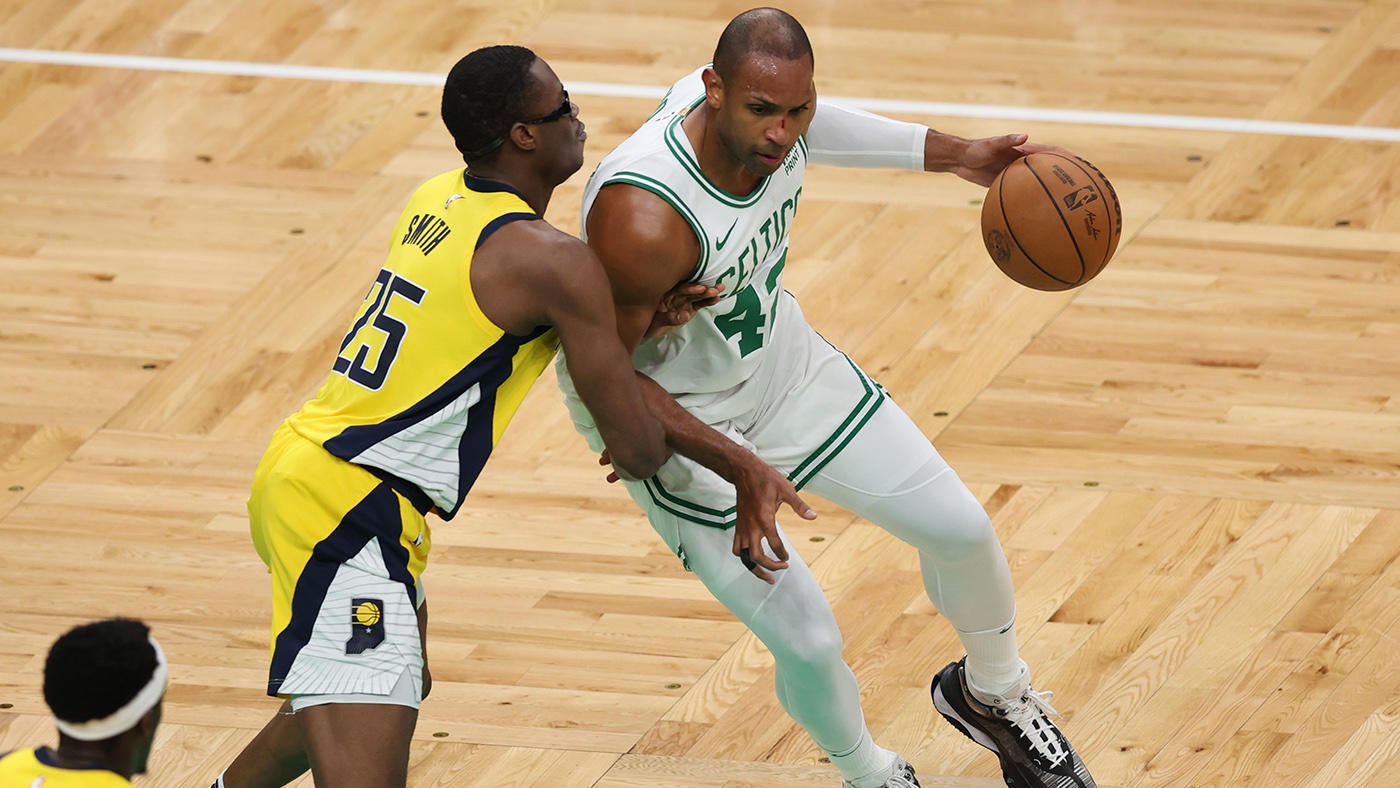New USWNT manager Emma Hayes starts tenure focused on Olympics and managing changing landscape in women’s game
Written by CBS SPORTS ALL RIGHTS RESERVED on May 23, 2024


NEW YORK — Emma Hayes won her seventh league title with Chelsea FC on May 18 and was on a flight just three days later to the United States for her new job as U.S. women’s national team manager. She’s bringing a winning pedigree and extended coaching experience, in Europe and the United States, so what exactly can U.S. fans expect ahead of the Olympics as the Hayes era officially kicks off? With the Olympics just two months away, Hayes is practicing patience and process when it comes to getting involved with her new squad.
She arrived on Wednesday afternoon in Newark and returned to New York for her reintroduction to American women’s soccer culture. She got reacquainted with Central Park, went for a walk before getting dinner, and then took another Central Park stroll before doing a string of media responsibilities on Thursday.
“It’s home to me. Like, New York is. I lived here for seven years,” she said reflecting on her return. “I know how to get about. Even more so as a parent, I know where the toy shops are now.”
Her New York reunion will be brief, though, as she’ll eventually call Atlanta, Georgia her home base, the new site of U.S. Soccer’s national training center and headquarters. U.S. Soccer announced Hayes as the official head coach back in December, but with a first-of-its-kind condition in the role, that she would only take on the job after her club season in England.
After a six-month-long wait, there’s a buzz around the U.S. women’s national team that is different than the headlines they made during the 2023 FIFA Women’s World Cup. A disappointing round of 16 elimination, the worst-ever finish in the program’s history, has led to change and a belief that brighter days are ahead in the ever-changing landscape of women’s soccer. With Hayes’ arrival, there’s excitement and optimism, but with the Olympics on the horizon, there are expectations again.
“We have to go step by step. Focus on all the little processes that need to happen so we can perform at our best level. If we can perform at our best level, then we have a chance of doing things, but we got work to do,” Hayes said of fan expectations for the team winning everything always.
“The realities are the world game is where it is, and the rest of the world do not fear the USA in the way that they once did. And that’s valid. I think it’s valid. There are different world champions, there are different Olympic champions. There are different European champions. So it’s our job to grasp quite quickly what we need to do to get close again, to those levels.”
She once penned an article about the U.S collegiate and youth systems and how the U.S. could not afford to lose ground in development. She is aware of the bigger picture but is currently focused on the Olympics, with long-term goals of connecting with other stakeholders.
“It’s (collegiate and youth conversations) not my priority, not right now. My priority is camp. But I will work with all the stakeholders, talk about what’s best. I think the USL league is healthy competition. That in itself can create a missing gap for lots of players that maybe only play collegiately but don’t make it in … and don’t want to go and play abroad. So some of those missing gaps might have already been filled.”
Hayes mentions the current elevated tactical play in NWSL this season, the arrival of new internationals, not just Europeans, as a key component in the rising level of play. She also believes the incoming USL Super League could be a pathway for more playing opportunities with differences in competitive levels.
“I think for us, we now have to focus on the important things which is day in day out. Gotta compete to be the best. We need our league, the NWSL to be hugely competitive. We need the USL for lots of reasons. The development pathway I think for players that don’t necessarily make NWSL to come in to be given a place to play. I think that in itself will create competition. I think competition is healthy. I think, you know, maybe the pairing up playing teams in Mexico, maybe.
All of these things. I think we have to compete with what’s going on in Europe … I think all of these things have to happen in order for the U.S. team to compete at the top level, and my job is to make sure I work together with all of those stakeholders so that together we have got the experience of what’s been done in Europe to be able to say, ‘Look, we’ve got the drive to the next space’ and I look forward to that because I’m now in a position where I can influence that.”
Hayes has been in Europe nearly as long as the National Women’s Soccer League has existed. The league is celebrating its 12th year, and American women’s soccer culture has changed as well. For Hayes, growth and evolution are key, and she believes there’s room to combine the best parts of what makes the USWNT click and for her and the current player pool to uphold and even remold what American women’s soccer culture can be.
“Well, I can’t define it now, because I’m not back in it. But what I can say from my time here is I’ve always loved the attitude towards performance and the expectation to give everything you’ve got,” she said.
She notes that’s always been part of the USWNT’s DNA, to compete to the end, and manage pressures of performing on big stages, and that staple of USWNT spirit she won’t fight against, but embrace.
“I think managing the badge on this jersey is one that a lot of players have done that in a privileged way, not necessarily a weighty way … I think when I go in now, I expect to see some evolutions, because you just see so many players getting exposed to different coaching cross clubs, whether it be domestically or internationally … I’ll be with it. But my job is like to be methodical about it. Like, you have to be processed towards getting to that point.”
Traveling the vast country will be part of her job to get a close view of player performances, but she won’t rack up all the miles on her own. She’ll have the team within the team, a large support staff that will include her former Chelsea FC assistant Denise Reddy among others, and former interim head coach Twila Kilgore.
Hayes credits her collaborative work with Kilgore as the direct link that helped her remain informed, prepared, and up to speed while waiting to take over.
“I have to like be really clear in my appreciation of Twila Kilgore. She’s not only steadied the ship since the World Cup, but her collaboration in this period has been essential,” explained Hayes.
“She’s been such a guide for me, and she’s taught me a lot. And together we’ve helped to sort of create, no bit by bit, the right roster together, and I think it would have been a lot tougher without Twila and thank goodness for that because I feel like the team’s better positioned as a result.”
A key part of their collaborative efforts was to expand the player pool and get more looks at new prospects. Jaedyn Shaw, Mia Fishel, Jenna Nighshwonger, and Olivia Moultrie, are just a handful of players who earned their first caps under Kilgore in preparation for the incoming Hayes era, and the players are still rotating in and out of camps. Center back Sam Staab and midfielder Hal Hershfelt earned their first seniorcamp call-ups.
Whenever an international player leaps to NWSL, they’re often asked about the differences in play or mentality, between the U.S. and previous clubs, but for coaches, it could be similar. Hayes is looking forward to getting into her first camp and finally getting to be with the players, the moment has brought an emotional shift for her as well.
“[It feels like] I’ve got a huge boulder off of my shoulders. Twelve years, one place, carried a lot of the women’s game in England, like, it’s liberating for me. I feel reenergized,” she said. “Hopefully, the experiences I’ve learned in 12-14 years I’ve been out of the country, that I can sort of bring the best version of myself to a job that requires it. So, I’m relaxed about it, but I’m also really really excited.”
The post New USWNT manager Emma Hayes starts tenure focused on Olympics and managing changing landscape in women’s game first appeared on CBS Sports.







